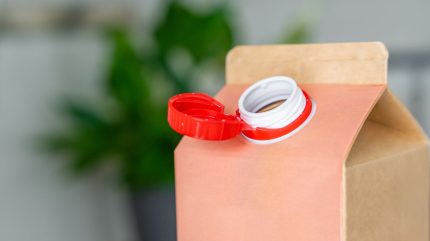
The EU is taking legal action against France over the country’s waste-sorting regulations.
In a statement, the European Commission said it would take France to the EU Court of Justice around the “incompatibility” of its waste-sorting labelling rules with EU law, claiming they prevent free movement of products across the bloc.

Discover B2B Marketing That Performs
Combine business intelligence and editorial excellence to reach engaged professionals across 36 leading media platforms.
Household goods in France that sit under the extended producer responsibility scheme, such as glass bottled water or milk cartons, must carry a ‘Triman logo’ on packaging, as well as ‘Info-Tri’ information which tells consumers how to sort the waste.
“National rules that lay down requirements – such as those relating labelling – to be met by goods coming from other member states where they are lawfully manufactured and marketed, represent obstacles to free movement of goods,” the Commission said.
It said such regulations “constitute measures of equivalent effect prohibited by Article 34 TFEU”, as businesses from other member states are required to develop unique packaging specifically for the French market.
The Commission had issued France “a letter of formal notice in February 2023, followed by a reasoned opinion in November 2024”, but the country “is still in breach of EU rules,” it said.

US Tariffs are shifting - will you react or anticipate?
Don’t let policy changes catch you off guard. Stay proactive with real-time data and expert analysis.
By GlobalDataAccording to the EU’s main executive arm, the French waste-sorting rules could be seen as “disproportionate” given “other suitable options – less restrictive of trade between member states – are available to inform consumers, until the EU-level harmonisation is achieved”.
In a statement sent to Just Drinks, the French ministry of ecological transition, biodiversity, forests, sea and fishing said it “will adapt the law to the packaging regulation to comply with European expectations by 2028. Until then, we hope to keep the Triman”. It added: “The dispute will end with the implementation of the regulation.”
The EU’s Packaging and Packaging Waste Directive, adopted by the bloc last December, looks to develop a harmonised system for labelling for the bloc.
The measures look to reduce 5% of packaging waste by 2030 compared to 2018, and to cut 15% by 2040.





